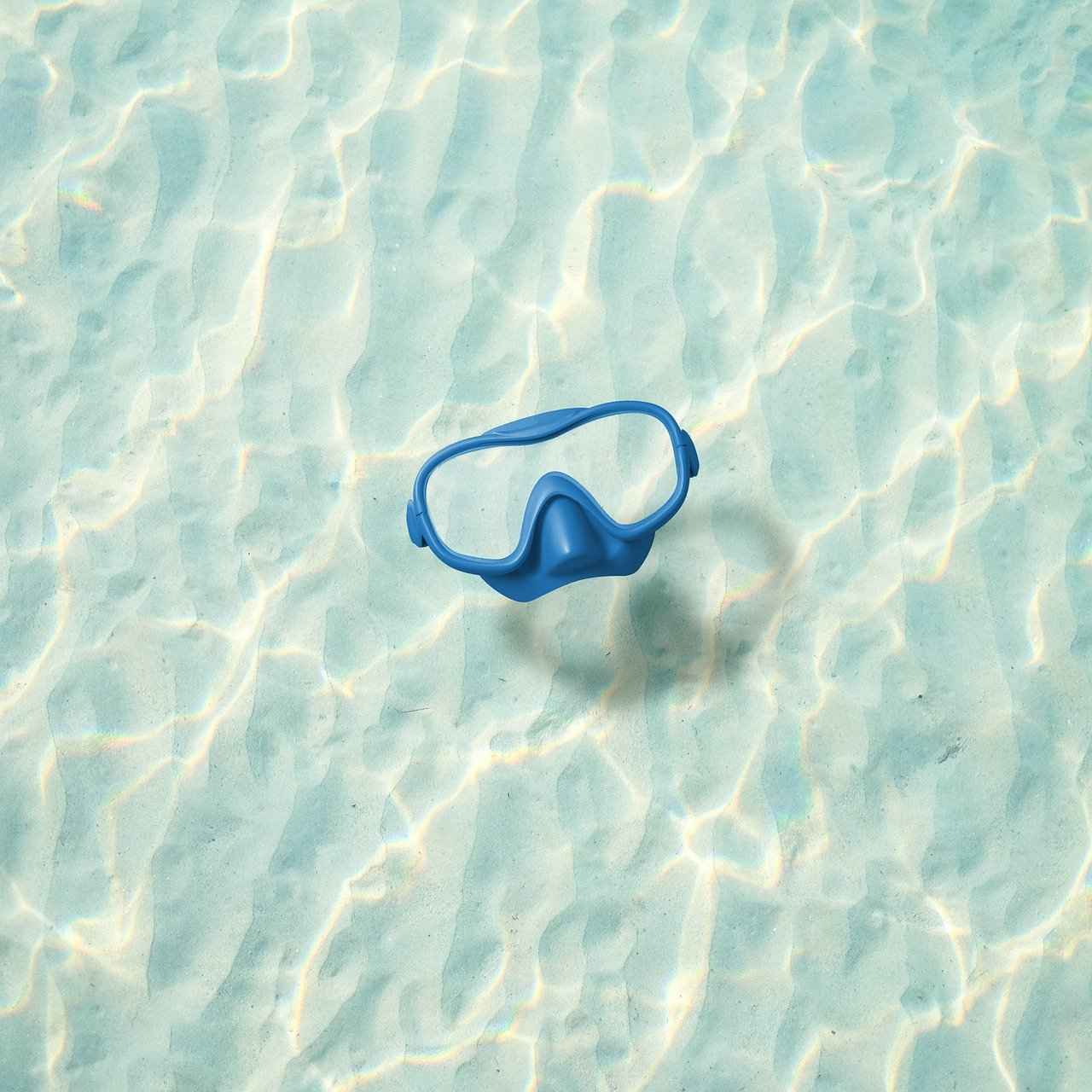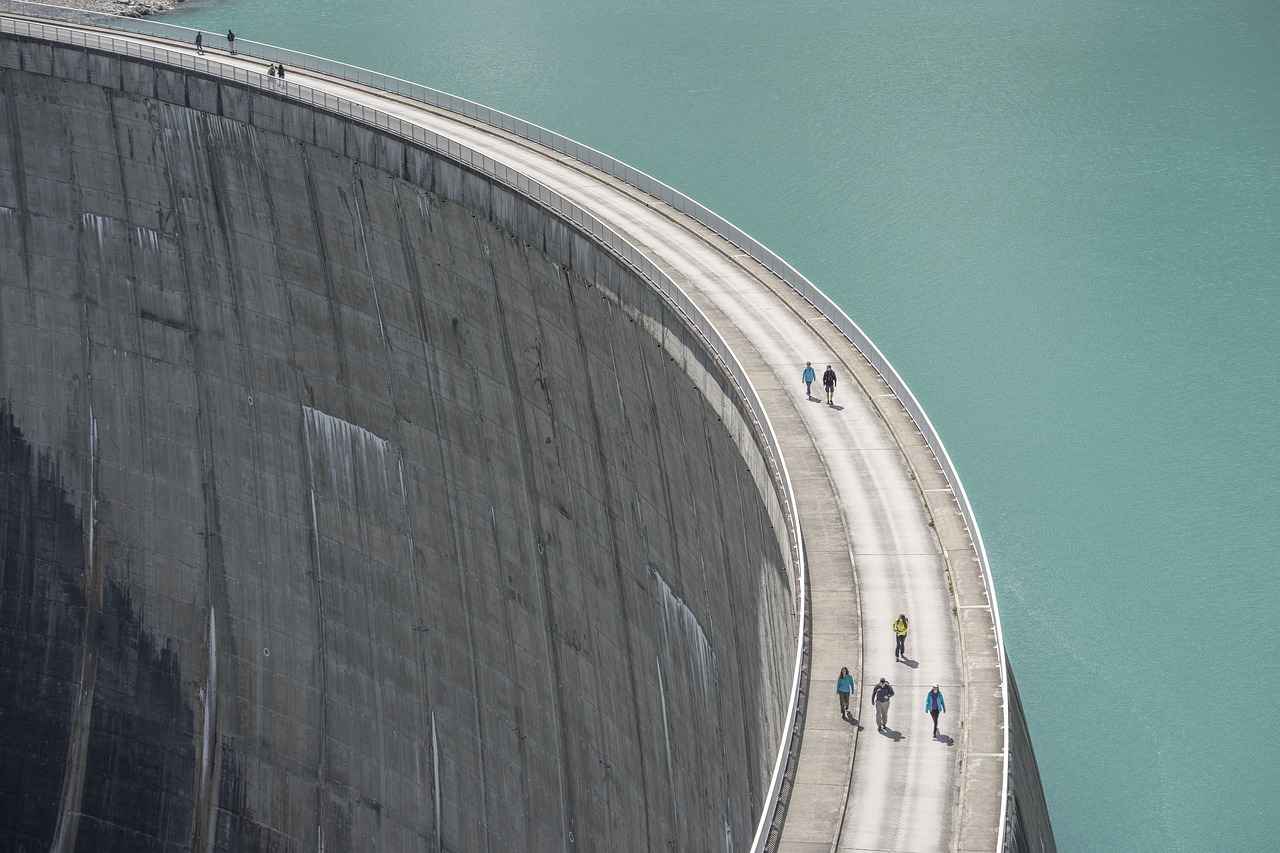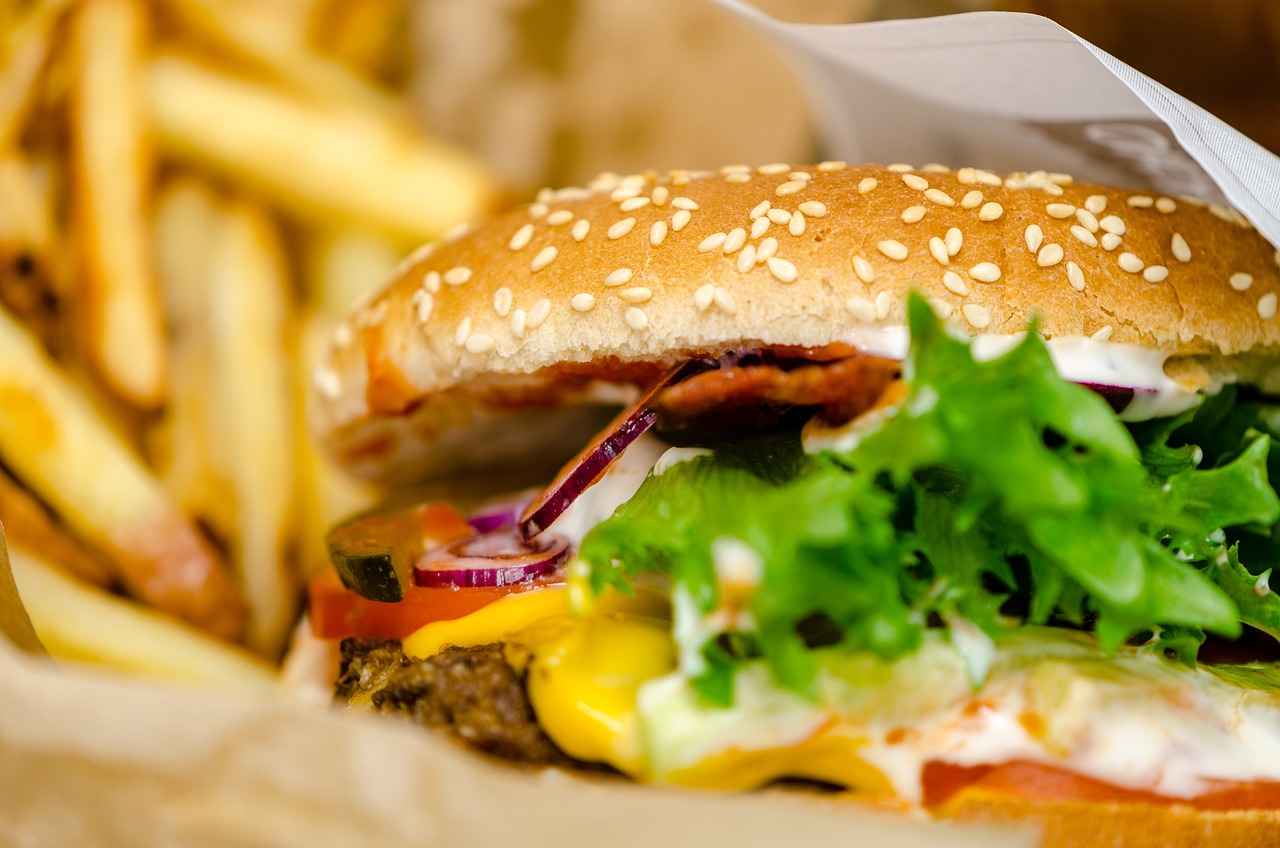This article explores the concept of water fasting, its benefits, risks, and practical tips for beginners looking to embark on this health journey. Water fasting involves abstaining from all food and caloric beverages, consuming only water for a specified duration. This practice has gained popularity due to its potential health benefits and simplicity.
What is Water Fasting?
Water fasting is defined as a period during which an individual consumes only water. Historically, it has been practiced for spiritual, health, and detoxification purposes. Many cultures have utilized fasting as a means to cleanse the body and promote mental clarity.
Health Benefits of Water Fasting
- Weight Loss: Water fasting can lead to a significant caloric deficit, promoting fat loss. Studies suggest that fasting may enhance metabolic rate, aiding in weight management.
- Detoxification: The body can focus on healing and detoxifying during a fast. This process may help eliminate harmful toxins and improve overall health.
- Improved Insulin Sensitivity: Water fasting has been linked to better insulin sensitivity, which can help regulate blood sugar levels.
Risks and Considerations of Water Fasting
While there are benefits, water fasting is not without risks. It is essential to approach fasting with caution and awareness.
- Physical Side Effects: Common side effects include fatigue, dizziness, and electrolyte imbalances. These can be exacerbated by prolonged fasting.
- Psychological Effects: Mood swings and cravings are common during fasting. Some individuals may experience heightened mental clarity, while others may struggle with focus.
How to Prepare for a Water Fast
Preparation is crucial for a successful water fast. Here are some practical steps:
- Choosing the Right Duration: Beginners should consider starting with shorter fasts, such as 24 hours, gradually increasing as they become more comfortable.
- Hydration Tips Before Starting: Proper hydration leading up to the fast is essential. Aim to drink plenty of water and consider reducing caffeine and alcohol intake to minimize withdrawal symptoms.
Breaking a Water Fast Safely
How you end a water fast is just as important as the fast itself. To safely reintroduce food:
- Foods to Reintroduce First: Start with gentle foods such as broths, juices, or easily digestible fruits to ease your digestive system back into processing food.
- Signs of a Successful Fast: Indicators of a successful fast include increased energy levels, improved mental clarity, and a sense of overall well-being.
In conclusion, water fasting can be a beneficial practice for those looking to detoxify, lose weight, or enhance their overall health. However, it is vital to approach it with caution and proper preparation to maximize benefits and minimize risks.

What is Water Fasting?
Water fasting is a unique dietary practice that involves abstaining from all food and beverages, except for water, for a designated period. This method of fasting has gained popularity in recent years, not only for its potential health benefits but also for its historical significance. Understanding the definition and context of water fasting is essential for anyone considering this practice.
Historically, water fasting has roots in various cultures and religions. Many ancient civilizations, including the Greeks and Egyptians, recognized fasting as a means of spiritual purification and healing. In religious contexts, fasting is often seen as a way to attain greater spiritual awareness, with adherents engaging in periods of abstinence to foster discipline and reflection. For instance, in Christianity, Lent is a time when many choose to fast or give up certain foods, while in Islam, Ramadan includes fasting from dawn until sunset.
In modern times, water fasting has been embraced for its potential health benefits. Many individuals turn to this practice not only for weight loss but also for detoxification and improved metabolic health. The process of fasting allows the body to enter a state of ketosis, where it begins to burn stored fat for energy, leading to potential weight loss. Additionally, proponents argue that water fasting can enhance mental clarity and boost energy levels, as the body shifts its focus from digestion to healing and repair.
However, it is important to approach water fasting with caution. While many individuals report positive experiences, there are potential risks associated with prolonged fasting, particularly for those with underlying health conditions. It is crucial to consult with a healthcare professional before embarking on a water fast, especially for individuals with diabetes, eating disorders, or other chronic illnesses.
In summary, water fasting is a practice steeped in tradition and modern health trends. By understanding its historical context and potential benefits, individuals can make informed decisions about whether this fasting method aligns with their health goals. As with any dietary change, proper preparation and awareness of personal health conditions are key to ensuring a safe and beneficial experience.

Health Benefits of Water Fasting
Water fasting has gained popularity in recent years as a method for improving health and achieving weight loss. This method involves abstaining from all food and beverages, except for water, for a specific duration. While it may sound daunting, many individuals are drawn to the potential health benefits associated with this practice. This section explores the various advantages of water fasting, supported by scientific research.
Water fasting is believed to offer a range of health benefits, which can be broadly categorized into detoxification and weight loss. Each of these benefits is underpinned by physiological changes that occur in the body during a fast.
One of the primary claims surrounding water fasting is its ability to detoxify the body. During a fast, the body undergoes a process called autophagy, where it begins to break down and remove damaged cells and toxins. This process can lead to improved cellular function and may reduce the risk of chronic diseases. Research has shown that autophagy can enhance the body’s ability to fight off infections and may even contribute to longevity.
Many individuals turn to water fasting as a strategy for weight loss. By consuming only water, the body is forced to utilize stored fat for energy, which can lead to significant fat loss over time. A study published in the journal Obesity found that intermittent fasting, including water fasting, can lead to a reduction in body weight and fat mass. Additionally, fasting helps to create a calorie deficit, a crucial component for weight loss.
Water fasting can also have positive effects on metabolism. During fasting, insulin levels drop, which promotes fat burning. Furthermore, fasting can increase levels of norepinephrine, a hormone that boosts metabolism and enhances fat breakdown. These metabolic changes can lead to improved energy levels and overall vitality.
Another benefit of water fasting is its potential to enhance mental clarity. Many individuals report experiencing heightened focus and cognitive function during fasting periods. This effect may be attributed to the release of brain-derived neurotrophic factor (BDNF), a protein that supports brain health. Research indicates that fasting may help improve mood and reduce symptoms of anxiety and depression.
Emerging research suggests that water fasting may have implications for longevity. Studies in animals have shown that caloric restriction, including fasting, can extend lifespan and reduce the incidence of age-related diseases. While more research is needed in humans, the preliminary findings are promising and suggest that water fasting may contribute to a longer, healthier life.
- Heart Health: Water fasting may improve cardiovascular health by lowering blood pressure, cholesterol levels, and inflammation.
- Digestive Health: Taking a break from food allows the digestive system to reset, potentially alleviating issues like bloating and indigestion.
- Immune System Support: Fasting can enhance immune function by promoting the regeneration of immune cells.
In conclusion, the health benefits of water fasting are vast and varied, ranging from detoxification and weight loss to improved mental clarity and potential longevity effects. As with any health practice, it is essential to approach water fasting with caution and consult with a healthcare professional, especially for those with pre-existing health conditions.
Weight Loss and Water Fasting
Water fasting has gained popularity as a method for weight loss, attracting individuals seeking to shed excess pounds quickly. This practice involves abstaining from all food and consuming only water for a specific duration. The appeal of water fasting lies in its simplicity and the potential for rapid results. In this section, we will delve into how water fasting can create a calorie deficit and facilitate fat loss.
To understand the weight loss benefits of water fasting, it is essential to recognize the concept of calorie deficit. A calorie deficit occurs when the number of calories consumed is less than the number of calories burned. By eliminating food intake during a water fast, individuals significantly reduce their caloric consumption, leading to a natural calorie deficit. This deficit is crucial for weight loss, as the body begins to utilize stored fat for energy.
During the fasting period, the body undergoes several metabolic changes. Initially, glycogen stores—carbohydrates stored in the liver and muscles—are depleted. Once these stores are exhausted, the body shifts to burning fat for fuel, a process known as ketosis. This metabolic state is often associated with enhanced fat burning and can lead to substantial weight loss over time.
Moreover, water fasting can help regulate hormones that play a pivotal role in weight management. For instance, fasting can increase levels of norepinephrine, a hormone that boosts fat burning. Additionally, it may lower insulin levels, which further promotes fat loss by making stored fat more accessible for energy use.
Aside from the physiological changes, many individuals report a heightened sense of mental clarity and focus during fasting. This could be attributed to the body’s adaptation to using fat as fuel, which may provide a more stable energy source compared to carbohydrates. As a result, some people find it easier to maintain their fasting regimen and adhere to their weight loss goals.
However, it is crucial to approach water fasting with caution. While the potential for quick weight loss is enticing, there are risks involved, particularly for those with underlying health conditions. It is advisable to consult with a healthcare professional before embarking on a water fast to ensure it is a safe option based on individual health circumstances.
In conclusion, water fasting can be an effective strategy for weight loss by creating a calorie deficit and promoting fat burning through metabolic changes. While it offers potential benefits, it is essential to consider the risks and approach this practice thoughtfully. With the right preparation and understanding, individuals can harness the power of water fasting to support their weight loss journey.
Metabolic Effects of Water Fasting
Understanding the metabolic effects of water fasting is essential for anyone considering this health practice. Water fasting involves abstaining from all food and caloric beverages, consuming only water for a designated period. During this time, the body undergoes several physiological changes that significantly impact metabolism.
Initially, when a person begins a water fast, the body shifts from using glucose as its primary energy source to utilizing fat stores. This process, known as ketosis, typically begins after 24 to 48 hours of fasting. In ketosis, the liver converts fatty acids into ketone bodies, which serve as an alternative fuel source for the brain and other tissues. This metabolic shift is one of the key reasons many people experience weight loss during water fasting.
Furthermore, water fasting can lead to a decrease in insulin levels. Insulin is a hormone that facilitates the uptake of glucose into cells, and lower levels can enhance fat burning. When insulin levels drop, the body becomes more efficient at mobilizing fat stores, leading to increased fat oxidation. This effect is particularly beneficial for individuals looking to lose weight or improve their metabolic health.
Another significant change during water fasting is the reduction in metabolic rate. Contrary to popular belief, short-term fasting does not necessarily slow down metabolism. In fact, studies have shown that metabolic rates can temporarily increase due to elevated levels of norepinephrine, a hormone that promotes fat breakdown. However, prolonged fasting may lead to a decrease in metabolic rate as the body adapts to conserve energy. This adaptation is a survival mechanism that can protect against starvation.
Moreover, water fasting can induce autophagy, a cellular repair process that removes damaged cells and regenerates new ones. Autophagy is crucial for maintaining metabolic health and is believed to play a role in longevity. This process is triggered by the absence of food intake, prompting the body to recycle cellular components for energy and repair.
It’s important to note that while water fasting can have beneficial metabolic effects, it is not suitable for everyone. Individuals with certain health conditions, such as diabetes or eating disorders, should consult a healthcare professional before attempting a water fast. Additionally, the duration of the fast should be carefully considered, as prolonged fasting can lead to nutrient deficiencies and other health issues.
In summary, the metabolic effects of water fasting are profound and multifaceted. From initiating ketosis and lowering insulin levels to promoting autophagy, the physiological changes that occur during a fast can significantly impact overall health. However, it is crucial to approach water fasting with caution and awareness of individual health needs.
Long-term Weight Management
Water fasting has gained popularity as a method for weight loss and health improvement. However, its benefits extend beyond the fasting period, particularly in the realm of sustainable weight management. This section will explore how water fasting can be integrated into long-term strategies for maintaining a healthy weight.
One of the primary advantages of water fasting is its ability to reset eating habits. During a water fast, individuals experience a significant reduction in calorie intake, which can lead to a caloric deficit. This deficit not only promotes initial weight loss but also encourages individuals to reassess their relationship with food. After completing a fast, many report feeling a decreased desire for unhealthy foods and a newfound appreciation for nutrient-dense options.
Additionally, water fasting can enhance metabolic flexibility. This term refers to the body’s ability to switch between burning carbohydrates and fats for energy. By undergoing a fasting period, individuals can train their bodies to utilize fat stores more efficiently, which is crucial for long-term weight maintenance. A study published in the Journal of Nutrition found that intermittent fasting, including water fasting, can improve metabolic markers, making it easier to sustain weight loss over time.
Another significant factor in long-term weight management is the psychological aspect of eating. Water fasting can help individuals develop a healthier mindset towards food. By experiencing hunger and satiety in a controlled environment, individuals often gain a better understanding of their body’s cues. This awareness can lead to more mindful eating practices post-fast, reducing the likelihood of binge eating or emotional eating.
| Benefits of Water Fasting for Long-term Weight Management | Description |
|---|---|
| Resetting Eating Habits | Encourages a shift towards healthier food choices after fasting. |
| Improved Metabolic Flexibility | Enhances the body’s ability to burn fat for energy. |
| Mindful Eating | Promotes awareness of hunger cues and reduces emotional eating. |
Moreover, water fasting may also positively influence hormonal balance. Fasting has been shown to decrease insulin resistance, which is vital for weight management. Lower insulin levels can facilitate fat burning and reduce fat storage, contributing to a healthier body composition in the long run.
Incorporating water fasting into a broader weight management strategy can be effective, especially when combined with a balanced diet and regular physical activity. It is essential to approach fasting with a plan, ensuring that individuals are not only focused on the short-term benefits but also on how to maintain their results. This holistic approach can help to foster a sustainable lifestyle that promotes overall health and well-being.
In summary, while water fasting can lead to immediate weight loss, its true power lies in its potential to instigate lasting change. By resetting eating habits, improving metabolic flexibility, and fostering a mindful relationship with food, water fasting can be a valuable tool for those seeking to maintain a healthy weight over the long term.
Detoxification and Health Improvements
Water fasting has gained popularity in recent years, often being associated with detoxification and health improvements. This practice involves abstaining from all food and consuming only water for a specified duration. But how exactly does this process contribute to cleansing the body and enhancing overall health?
One of the primary mechanisms by which water fasting promotes detoxification is through the process of autophagy. During fasting, the body initiates a natural cleanup process where it breaks down and recycles damaged cells and proteins. This self-cleansing mechanism not only helps eliminate toxins but also supports cellular repair and regeneration. Research has shown that autophagy can play a crucial role in reducing inflammation and may even help in the prevention of chronic diseases.
Furthermore, water fasting may aid in the reduction of oxidative stress. When the body is under stress from toxins, it produces free radicals, which can lead to cellular damage. By giving the digestive system a break and focusing solely on hydration, the body can redirect its energy towards detoxification processes. This shift can lead to improved cellular function and a decrease in oxidative damage, potentially lowering the risk of various health issues.
In addition to cellular detoxification, water fasting can also impact the body’s metabolic processes. When food intake is restricted, the body begins to utilize stored fat for energy, leading to a state known as ketosis. This metabolic shift not only aids in weight loss but can also enhance mental clarity and focus. Many individuals report improved cognitive function during fasting periods, attributing this to the increased production of ketones, which serve as an alternative energy source for the brain.
Moreover, water fasting has been linked to improvements in gut health. By eliminating solid food, the digestive system gets a chance to rest and repair. This can lead to a healthier gut microbiome, which is essential for overall health. A balanced gut microbiome plays a vital role in digestion, immune function, and even mood regulation. Studies suggest that intermittent fasting, including water fasting, can positively influence gut bacteria diversity, further promoting health improvements.
However, it’s important to approach water fasting with caution. While many people experience positive health benefits, others may face challenges such as fatigue, dizziness, or electrolyte imbalances. It’s crucial to listen to your body and consult with a healthcare professional before embarking on a fasting journey, especially for those with underlying health conditions.
In summary, water fasting can serve as a powerful tool for detoxification and health improvements. By engaging in this practice, individuals may experience enhanced cellular repair, reduced oxidative stress, improved metabolic function, and better gut health. As with any health regimen, understanding the potential benefits and risks is essential to ensure a safe and effective fasting experience.

Risks and Considerations of Water Fasting
Water fasting, while regarded for its potential health benefits, is not without its risks. Understanding these risks is crucial for anyone considering this practice. This section will delve into the potential dangers associated with water fasting and identify individuals who should avoid it.
Engaging in a water fast can lead to several adverse effects, particularly if not approached with caution. Some of the most common risks include:
- Dehydration: Although water is consumed, the body may still experience dehydration due to the lack of electrolytes and nutrients.
- Electrolyte Imbalance: Extended fasting can lead to an imbalance of essential electrolytes like sodium and potassium, which are vital for heart and muscle function.
- Fatigue and Weakness: Many individuals report feelings of extreme fatigue and weakness, which can hinder daily activities and responsibilities.
- Dizziness and Fainting: The lack of caloric intake can cause dizziness or fainting spells, particularly when standing up quickly.
- Muscle Loss: Prolonged fasting can lead to muscle breakdown as the body starts using muscle tissue for energy.
Water fasting is not suitable for everyone. Certain groups of people should exercise caution or completely avoid this practice:
- Individuals with Chronic Health Conditions: Those with diabetes, heart disease, or other chronic illnesses should consult a healthcare professional before attempting a fast.
- Pregnant or Breastfeeding Women: Fasting can deprive both mother and child of essential nutrients needed for healthy development.
- People with Eating Disorders: Those with a history of eating disorders may find that fasting exacerbates unhealthy behaviors or thoughts.
- Older Adults: Age-related factors can increase the risks associated with fasting, including the potential for dehydration and nutrient deficiencies.
The psychological effects of fasting can also be profound. Many individuals experience mood swings, irritability, and heightened cravings during fasting periods. These effects can lead to unhealthy eating patterns once the fast is broken. It’s essential to be aware of these potential mental health implications before embarking on a water fast.
While water fasting can offer some health benefits, it is crucial to weigh these against the potential risks. Individuals considering this practice should conduct thorough research and consult with a healthcare provider to ensure it aligns with their health needs and conditions.
Physical Side Effects
Fasting, particularly water fasting, can have a range of physical side effects that individuals should be aware of before embarking on this journey. Understanding these potential issues is crucial for anyone considering this practice, as it can help prepare them for the experience and allow for informed decision-making.
One of the most common side effects of fasting is fatigue. As the body transitions from a state of regular food intake to fasting, energy levels may drop significantly. This is primarily due to the body adjusting to using stored fat for energy instead of carbohydrates. During this adjustment period, individuals may feel unusually tired or lethargic, especially in the initial days of the fast.
Another prevalent issue is dizziness. This sensation can occur for several reasons, including low blood sugar levels and dehydration. As the body continues to fast, it may experience a drop in glucose levels, leading to feelings of lightheadedness. Additionally, if individuals do not adequately hydrate, they may suffer from dehydration, which can exacerbate dizziness. It’s essential to listen to your body and rest as needed.
Moreover, fasting can lead to electrolyte imbalances. Electrolytes, such as sodium, potassium, and magnesium, are vital for many bodily functions, including muscle contractions and nerve signaling. When fasting, especially for extended periods, the intake of these essential minerals decreases, potentially leading to symptoms such as muscle cramps, heart palpitations, or even more severe complications. Staying aware of these symptoms and considering electrolyte supplementation can be beneficial.
Furthermore, some individuals may experience headaches during fasting. This discomfort can stem from various factors, including caffeine withdrawal, dehydration, or changes in blood sugar levels. For those who regularly consume caffeine, discontinuing its intake suddenly during a fast can trigger withdrawal headaches. Staying hydrated and gradually reducing caffeine intake before starting a fast may help mitigate this effect.
It’s also important to note that gastrointestinal issues may arise during fasting. Some people report symptoms such as bloating, constipation, or diarrhea. These issues can occur as the digestive system adjusts to the absence of food. To alleviate discomfort, individuals may consider incorporating gentle refeeding strategies after the fast and ensuring adequate hydration throughout the fasting period.
Lastly, mood swings can also be a side effect of fasting. The change in dietary habits can lead to fluctuations in mood and irritability, largely due to the body’s response to hunger and changes in blood sugar levels. It is essential to be aware of these emotional changes and practice self-care techniques, such as meditation or light exercise, to maintain mental well-being during the fasting period.
In summary, while fasting can offer numerous health benefits, it is vital to be aware of the potential physical side effects. By understanding and preparing for issues such as fatigue, dizziness, electrolyte imbalances, headaches, gastrointestinal disturbances, and mood swings, individuals can navigate their fasting journey more effectively and safely.
Psychological Effects of Fasting
The psychological effects of fasting can be profound and multifaceted. As individuals embark on a fasting journey, they often encounter a range of emotional and cognitive changes that can significantly influence their overall experience. This section will explore the various mood alterations, cravings, and the enhanced mental clarity that may accompany a fast.
During fasting, many people report experiencing mood fluctuations. Initially, the body may react to the absence of food with irritability or anxiety, commonly referred to as “hanger.” This is due to the drop in blood sugar levels, which can affect mood-regulating neurotransmitters. However, as the fast progresses, many individuals experience a shift toward improved emotional stability and even euphoria. This phenomenon is often attributed to the release of endorphins and the body’s adaptation to the fasting state.
Cravings are another significant psychological aspect of fasting. Initially, the body may send strong signals for food, leading to intense urges to eat. These cravings can be challenging to manage, especially in the early days of a fast. However, as one continues to abstain from food, many report that these cravings diminish over time. The psychological shift can be empowering, as individuals learn to distinguish between physical hunger and emotional cravings. This process can foster a deeper understanding of one’s relationship with food and promote healthier eating habits in the long run.
One of the most notable benefits of fasting is the potential for enhanced mental clarity. Many practitioners of fasting report experiencing heightened focus and creativity during the fasting period. This is thought to be linked to the brain’s increased production of ketones, which serve as an alternative energy source when glucose is scarce. The mental clarity experienced during fasting can lead to improved productivity and a greater sense of purpose, making it an appealing practice for those seeking cognitive enhancement.
- Mood Changes: Initial irritability may give way to emotional stability.
- Cravings: Intense urges can decrease over time, leading to better food relationships.
- Mental Clarity: Enhanced focus and creativity reported during fasting.
Moreover, fasting can also prompt self-reflection and a reassessment of personal goals and values. The process of fasting often encourages individuals to confront their habits and motivations, leading to personal growth. This introspective journey can be a powerful catalyst for change, helping individuals align their actions with their long-term aspirations.
In conclusion, the psychological effects of fasting are complex and can vary widely from person to person. While the initial stages may present challenges such as mood swings and cravings, many find that the benefits, including improved mental clarity and self-awareness, far outweigh the difficulties. Understanding these psychological dynamics can help individuals prepare for a fasting experience that is not only physically beneficial but also mentally enriching.

How to Prepare for a Water Fast
Preparation is key to a successful water fast. For beginners, taking the right steps before starting can significantly enhance the experience and results. This section outlines practical and essential steps to ensure a smooth transition into water fasting.
First and foremost, it is crucial to understand your motivation for fasting. Whether it’s for detoxification, weight loss, or spiritual reasons, having a clear intention will help you stay focused and committed throughout the fasting period.
- Consult a healthcare professional: Before starting any fasting regimen, especially if you have pre-existing health conditions, it’s wise to seek medical advice. A professional can help assess your health status and provide personalized recommendations.
- Choose the right duration: For beginners, starting with shorter fasts of 24 to 48 hours is advisable. This allows your body to adjust gradually without overwhelming it. As you gain experience, you can consider longer fasts.
- Prepare your body: In the days leading up to your fast, gradually reduce your intake of caffeine, sugar, and processed foods. This eases the transition and minimizes withdrawal symptoms during the fast.
Another important aspect is hydration. Ensure you are well-hydrated before starting your fast. Drink plenty of water in the days prior, aiming for at least 2 to 3 liters each day. This will help your body cope better during the fasting period.
Additionally, consider keeping a journal to track your thoughts, feelings, and physical sensations during the preparation phase and the fast itself. This can provide valuable insights into how your body responds to fasting.
| Preparation Steps | Benefits |
|---|---|
| Consult a healthcare professional | Ensures safety and personalized advice |
| Gradually reduce food intake | Minimizes withdrawal symptoms |
| Stay hydrated | Helps the body handle the fast |
| Keep a journal | Tracks progress and feelings |
Lastly, prepare yourself mentally and emotionally. Fasting can be as much a mental challenge as it is a physical one. Engage in activities like meditation or yoga to cultivate a calm mindset. Having a support system, whether through friends or online communities, can also provide encouragement and motivation.
By following these practical steps, beginners can set themselves up for a successful water fast. Remember, the journey is as important as the destination, and being well-prepared will help you achieve your fasting goals.
Choosing the Right Duration
When embarking on a water fast, is essential for both safety and effectiveness. This decision can significantly impact your overall experience, health goals, and the results you wish to achieve. Here, we will explore various factors to consider when determining how long to fast, ensuring that your choice aligns with your personal health objectives and experience level.
For beginners, it is advisable to start with shorter fasting durations, typically ranging from 24 to 48 hours. This allows your body to adapt to the changes without overwhelming it. Shorter fasts can help you gauge your physical and mental responses, making it easier to decide if longer fasts are suitable for you in the future.
- Health Goals: Your specific health goals play a vital role in determining the length of your fast. If your primary aim is detoxification, a fast lasting between 24 to 72 hours might suffice. However, if weight loss is your goal, you may consider extending your fast to 3 to 7 days, provided you are physically prepared for it.
- Experience Level: If you are new to fasting, it is crucial to listen to your body. Beginners should avoid long fasts initially, as they may lead to adverse effects such as fatigue or dizziness. Once you gain more experience and understand how your body reacts, you can gradually increase the duration.
- Physical Condition: Your overall health and any pre-existing medical conditions should influence your fasting duration. Consult with a healthcare professional to ensure that fasting is safe for you, especially if you have conditions like diabetes or heart disease.
Another important factor to consider is your daily routine. If you have a busy schedule or a physically demanding job, a shorter fast may be more manageable. On the other hand, if you can afford to rest and focus on your fasting journey, you might opt for a longer duration.
It is also beneficial to keep a journal during your fasting period. Documenting your feelings, energy levels, and any physical changes can provide insights into how different durations affect you personally. This practice will not only help you make informed decisions for future fasts but also enhance your overall fasting experience.
In conclusion, the duration of your water fast should be tailored to your individual health goals, experience level, and physical condition. By starting with shorter fasts and gradually increasing the duration as you become more comfortable, you can safely explore the benefits of water fasting while minimizing risks. Remember, the key to a successful fast lies in understanding your body and making informed choices.
Hydration Tips Before Starting
Before embarking on a water fast, ensuring proper hydration is crucial for a successful experience. Staying hydrated not only helps to prepare your body for the fast but also aids in minimizing potential side effects. In this section, we will explore effective hydration strategies leading up to your fasting period.
- Increase Water Intake Gradually: In the days prior to starting your fast, gradually increase your water consumption. Aim for at least 2-3 liters of water daily. This will help your body adjust to the upcoming changes.
- Incorporate Hydrating Foods: Include water-rich foods in your diet, such as cucumbers, watermelon, oranges, and spinach. These foods not only contribute to your hydration levels but also provide essential vitamins and minerals.
- Limit Diuretics: Reduce the intake of diuretic beverages like coffee, tea, and alcohol. These can lead to increased urination and may dehydrate you, counteracting your hydration efforts.
- Monitor Electrolyte Balance: As you prepare for your fast, consider incorporating electrolyte-rich beverages, such as coconut water or electrolyte supplements. Maintaining a balance of electrolytes is vital for nerve and muscle function, especially during fasting.
- Set Reminders: Use your phone or a hydration app to remind you to drink water throughout the day. Keeping track of your water intake can help ensure you stay adequately hydrated.
It’s also important to listen to your body. If you feel thirsty, drink water. Thirst is a natural signal indicating your body needs hydration. Additionally, consider the temperature and your activity level; hot weather or intense workouts may require you to increase your fluid intake further.
As the fasting day approaches, aim to finish your last meal with a glass of water to maximize hydration before the fast begins. This final boost can help set the stage for a smoother fasting experience, as your body will be better equipped to handle the transition.
By following these hydration tips, you can prepare your body effectively for a water fast, enhancing your overall experience and minimizing discomfort during the fasting period.

Breaking a Water Fast Safely
is crucial for maintaining the benefits of your fasting experience while minimizing potential discomfort. After a prolonged period of consuming only water, your body needs time to readjust to food intake. This section provides essential guidelines to help you reintroduce food effectively and healthily.
When you complete a water fast, your digestive system may become sensitive. Therefore, how you break your fast is as important as the fast itself. Here are some key considerations:
- Start Slowly: Begin with small portions to allow your digestive system to reactivate. Consuming large meals right away can lead to gastrointestinal distress.
- Choose Gentle Foods: Opt for easily digestible foods such as broths, smoothies, or soft fruits. These options help ease your body back into digestion without overwhelming it.
- Avoid Processed Foods: Steer clear of heavy, greasy, or highly processed foods initially. These can cause bloating and discomfort as your body readjusts.
- Stay Hydrated: Continue to drink water as you reintroduce food. Hydration supports digestion and helps prevent any potential discomfort.
After the initial reintroduction of food, you can gradually incorporate more solid options. Here’s a suggested timeline for breaking your fast:
| Day | Food Recommendations |
|---|---|
| 1 | Broth, diluted juices, or herbal teas |
| 2 | Soft fruits like bananas or applesauce |
| 3 | Steamed vegetables, oatmeal, or yogurt |
| 4 and Beyond | Gradually reintroduce whole grains, lean proteins, and other healthy foods |
Additionally, it’s essential to listen to your body during this process. Pay attention to how you feel as you reintroduce different foods. If you experience any discomfort, consider slowing down the reintroduction process.
Some signs of a successful transition after breaking your fast include:
- Stable Energy Levels: You should feel a gradual increase in energy as your body adjusts to food intake.
- Normal Digestive Function: Regular bowel movements and the absence of discomfort indicate that your digestive system is functioning well.
- Improved Mood: Many individuals report enhanced mood and mental clarity after successfully breaking their fast.
In conclusion, breaking a water fast requires careful planning and attention to your body’s signals. By following these guidelines, you can ensure a smooth transition back to regular eating habits, allowing you to reap the full benefits of your fasting experience.
Foods to Reintroduce First
Breaking a water fast requires careful consideration of the foods you choose to reintroduce into your diet. This process is crucial, as the right foods can help prevent digestive discomfort and support your body’s transition back to regular eating. Here, we will explore gentle foods that are ideal for breaking a fast, ensuring a smoother and more comfortable experience.
- Bone Broth: Rich in nutrients and easy on the stomach, bone broth is an excellent first food. It provides essential minerals and helps to restore gut health.
- Vegetable Broths: Similar to bone broth, vegetable broths are light and hydrating. They can provide a variety of vitamins and minerals while being gentle on the digestive system.
- Fresh Juices: Diluted fresh juices, particularly from fruits like watermelon or cucumber, can be a refreshing way to reintroduce sugars and hydration. Ensure they are low in acidity to avoid stomach upset.
- Steamed Vegetables: Soft, steamed vegetables such as zucchini or carrots offer fiber and nutrients without overwhelming the digestive tract. They are easily digestible and can help ease your stomach back into processing solid foods.
- Fermented Foods: Foods like yogurt or kefir contain probiotics that can aid digestion. Start with small amounts to see how your body reacts before consuming larger portions.
- Soft Fruits: Bananas, avocados, and applesauce are great choices. They are easy to digest and provide natural sugars, fiber, and essential nutrients.
- Rice or Oatmeal: Plain, cooked rice or oatmeal can serve as a gentle carbohydrate source. They are bland and can help settle the stomach.
When breaking your fast, it is essential to listen to your body. Start with small portions of these gentle foods and gradually increase your intake as your digestive system readjusts. Avoid heavy, rich, or processed foods initially, as they can lead to discomfort and negate the benefits of your fasting experience.
Additionally, pay attention to any signs of digestive distress, such as bloating or cramping. If these occur, it may be wise to revert to more liquid-based foods or consult with a healthcare professional for personalized advice.
In summary, the foods you choose to reintroduce after a water fast play a vital role in how your body responds. By opting for gentle, easily digestible options, you can ensure a smoother transition back to regular eating, maximizing the benefits of your fasting journey.
Signs of a Successful Fast
Understanding the is essential for anyone embarking on a water fasting journey. These indicators not only help you assess your experience but also guide you in making informed decisions about your health. Below, we explore the key signs that indicate you have successfully completed a water fast.
- Increased Energy Levels: After a period of fasting, many individuals report a significant boost in their energy levels. This is often a result of the body adapting to the fasting state and optimizing its energy usage.
- Improved Mental Clarity: A common sign of a successful fast is enhanced mental clarity and focus. Many people experience a reduction in brain fog, allowing for better concentration and cognitive function.
- Physical Signs of Detoxification: During a fast, your body undergoes a detoxification process. Signs such as clearer skin, reduced inflammation, and the elimination of cravings can indicate that your body is effectively cleansing itself.
- Stable Blood Sugar Levels: Successfully completing a fast often leads to more stable blood sugar levels. You may notice fewer spikes and drops in energy, which can contribute to overall well-being.
- Weight Loss: For many, weight loss is a primary goal of water fasting. A noticeable decrease in weight during and after the fast can be a clear indicator of its success.
- Enhanced Sense of Taste: After fasting, many individuals find that their sense of taste is heightened. Foods may taste more vibrant and flavorful, which can enhance your enjoyment of meals post-fast.
- Feeling of Accomplishment: Completing a fast can provide a profound sense of achievement. This psychological benefit can boost your confidence and motivate you to pursue further health goals.
It is important to listen to your body during the fasting process and pay attention to these signs. Recognizing these indicators can help you determine the effectiveness of your fast and prepare for a safe transition back to regular eating.
In addition to these signs, it is crucial to remain aware of any negative symptoms that may arise. If you experience severe dizziness, persistent fatigue, or other concerning symptoms, it is advisable to consult a healthcare professional. A successful fast is not solely defined by the absence of food but by the overall well-being and balance achieved during the process.
By understanding and recognizing the signs of a successful fast, you can make the most of your water fasting experience and enhance your journey towards better health.
Frequently Asked Questions
- What is water fasting?
Water fasting is a practice where individuals consume only water for a set period. It’s a way to give your digestive system a break while potentially reaping health benefits.
- How long should I water fast?
The duration of a water fast can vary. Beginners might start with 24 hours, while experienced individuals may extend it to several days. Always listen to your body!
- What are the benefits of water fasting?
Water fasting is known for benefits like detoxification, weight loss, and improved metabolic health. It can help reset your body’s processes and promote mental clarity.
- Are there any risks associated with water fasting?
Yes, risks include fatigue, dizziness, and electrolyte imbalances. It’s crucial to consult a healthcare professional, especially if you have underlying health issues.
- How should I break a water fast?
Breaking a fast should be done gently. Start with light foods like broth or fruits to avoid digestive distress, and gradually reintroduce solid foods.
- Can everyone do a water fast?
Not everyone should attempt water fasting. Pregnant women, individuals with certain health conditions, or those on specific medications should avoid it.
- How can I prepare for a water fast?
Preparation is key! Stay hydrated in the days leading up to the fast and consider gradually reducing your food intake to ease into the experience.












